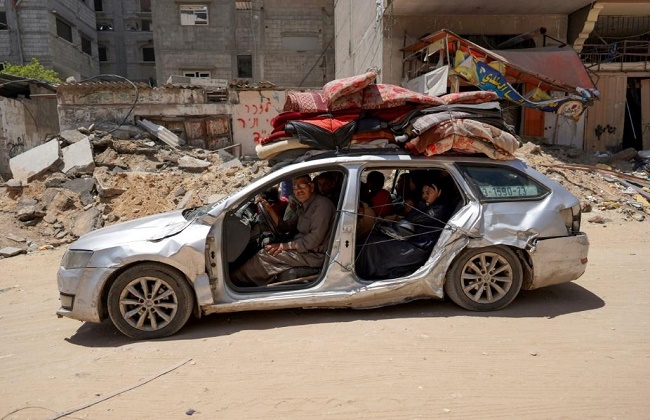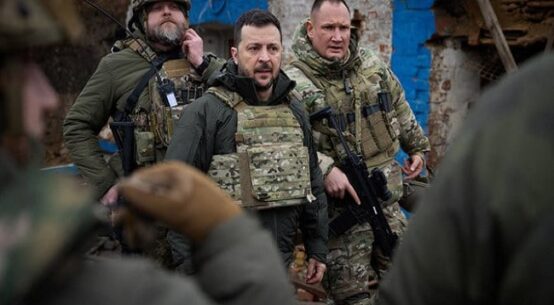
Israel launched fresh strikes in the Gaza Strip Friday after negotiators pursuing a long-stalled truce agreement left talks in Cairo without having secured a deal.
AFP journalists in the Gaza Strip early Friday witnessed artillery strikes on Rafah on the territory’s southern border with Egypt, while witnesses reported air strikes and fighting in Gaza City further north.
Israeli and Hamas negotiating teams left Cairo Thursday after what the Egyptian hosts described as a “two-day round” of indirect negotiations on the terms of a Gaza truce, according to Egyptian intelligence-linked Al-Qahera News.
Hamas, which runs the Gaza Strip and whose unprecedented October 7 attacks on Israel sparked the war there, said its delegation had left for Qatar, home to the Palestinian Hamas group’s political leadership.
“The negotiating delegation left Cairo heading to Doha. In practice, the occupation (Israel) rejected the proposal submitted by the mediators and raised objections to it on several central issues,” Hamas said in a message to other Palestinian factions, adding it stood by the proposal.
“Accordingly, the ball is now completely in the hands of the occupation.”
Hamas had said Monday that it had accepted a ceasefire proposal put forward by mediators.
The deal, the group said, involved a withdrawal of Israeli forces from Gaza, the return of Palestinians displaced by the war, and the exchange of hostages held by Hamas for Palestinian prisoners detained in Israel, with the aim of a “permanent ceasefire”.
Israeli Prime Minister Benjamin Netanyahu’s office at the time called the proposal “far from Israel’s essential demands”, but said the government would still send negotiators to Cairo.
Israel has long resisted the idea of a permanent ceasefire, insisting it must finish the job of dismantling Hamas.
Mediator Egypt said the two sides must show “flexibility” in order to strike a deal for a ceasefire and hostage-prisoner exchange in the seven-month war, according to a foreign ministry statement.
CIA director William Burns, who is also part of the truce efforts, is due to return to the United States from the Middle East on Friday, the White House said.
“That doesn’t mean there aren’t still ongoing discussions,” White House National Security Council spokesman John Kirby said.
“We still believe that there’s a path forward, but it’s going to take some leadership on both sides.”
But at a makeshift refugee camp in Rafah, displaced Gazan Inas Mazen al-Shami said she was fed up with the stalling.
“We have no money and we don’t have the means to move from one place to another again and again. We have no means at all,” she said.
The Gaza war began with Hamas’s unprecedented October 7 attack on Israel, which resulted in the deaths of more than 1,170 people, mostly civilians, according to an AFP tally of Israeli official figures.
During the attack, Hamas also seized some 250 hostages, of whom Israel estimates 128 remain in Gaza, including 36 who officials say are dead.
Israel’s retaliatory offensive has killed at least 34,904 people in Gaza, mostly women and children, according to the Hamas-run territory’s health ministry.

